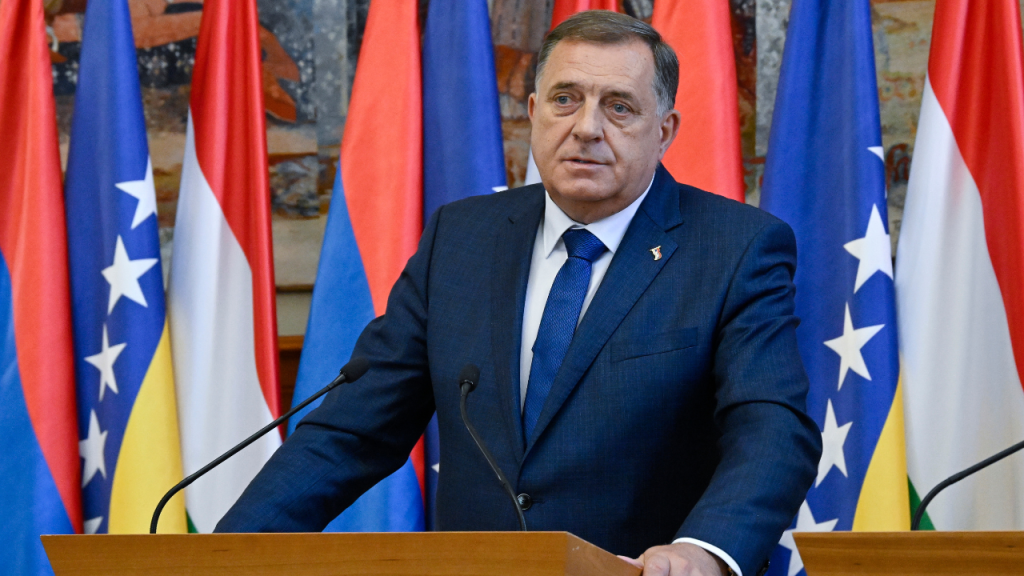Hungary plans to oppose a UN resolution commemorating the 1995 Srebrenica genocide, citing potential Balkan tensions. Despite the controversial issue of the genocide, Hungary’s foreign minister, Péter Szijjártó, believes that the resolution would demonize the entire Serbian nation. During a meeting with Bosnian Serb leader Milorad Dodik in Budapest, Szijjártó accused the UN and Bosnia’s high representative of destabilizing the region. The Srebrenica genocide involved Bosnian Serb troops killing more than 8,000 Bosniak Muslims in the eastern Bosnian enclave, with victims’ remains later being reburied in mass graves to hide evidence of the atrocities.
Hungary’s decision to vote against the planned UN resolution on the genocide, calling it the “Srebrenica tragedy,” has sparked criticism. The resolution, proposed by Germany and Rwanda, would designate 11 July as the “International Day of Reflection and Commemoration of the 1995 Genocide in Srebrenica.” Despite support from Bosniak politicians in Bosnia, a number of European countries, and the United States, Bosnian Serbs and neighboring Serbia strongly oppose it. International courts in The Hague have labeled the Srebrenica massacre as genocide, with Bosnian Serb top army officers and political leaders being convicted of genocide by UN judges.
Bosnian Serb separatist leader Milorad Dodik, accused of corrupt activities threatening to destabilize the region, denies that the Srebrenica massacre was a genocide. He thanked Hungary for taking a position against the UN resolution, arguing that it would further destabilize Bosnia and Herzegovina. Emir Suljagić, head of the Srebrenica Memorial Center, criticized Hungary’s stance as aligning with denial and revisionism. Suljagić blamed Hungarian Prime Minister Viktor Orbán for rejecting international consensus on human rights issues and sending a dangerous message that historical truths can be ignored for political expediency.
The UN resolution on the Srebrenica genocide is backed by Bosniak politicians in Bosnia, several European countries, and the US. Proposed as a day of reflection and commemoration, it has faced strong opposition from Bosnian Serbs and Serbia, who fear it will brand the Serbs as a genocidal nation. International courts have recognized the crime in Srebrenica as genocide, with convictions against Bosnian Serb leaders. Russia and China also support the opposition to the resolution, adding to the ongoing tensions in the region.
The Srebrenica genocide, where Bosnian Serb troops killed more than 8,000 Bosniak Muslims, remains a controversial and sensitive issue in the Balkans. Hungary’s decision to oppose the UN resolution on commemorating the genocide has further deepened the divisions in the region. While there are efforts to acknowledge and learn from the tragic events of Srebrenica, the opposing views on the genocide continue to strain relations among different groups in Bosnia and Herzegovina, as well as between neighboring countries such as Hungary and Serbia.
Overall, the situation surrounding the Srebrenica genocide remains complex and continues to be a point of contention between different parties involved. Hungary’s opposition to the UN resolution on commemorating the genocide has sparked debate and criticism from those who believe it is necessary to acknowledge and remember the tragic events that occurred in Srebrenica in 1995. The ongoing tensions and disagreements surrounding the genocide serve as a reminder of the importance of addressing historical atrocities and working towards reconciliation and peace in the Balkans.













